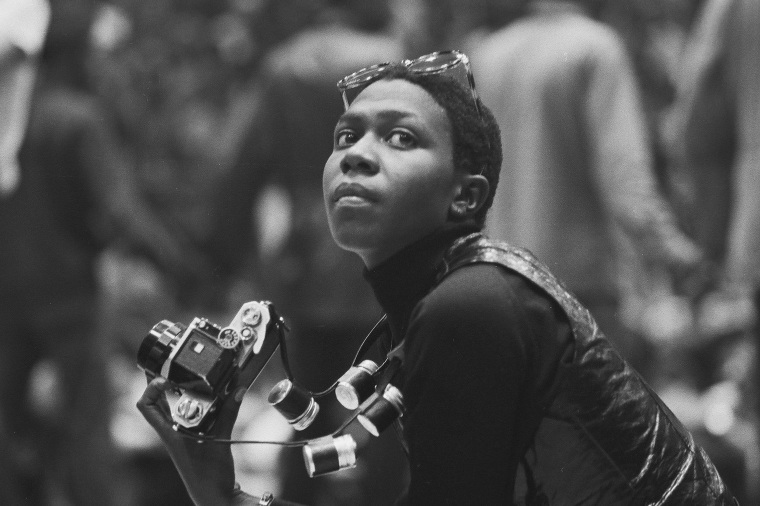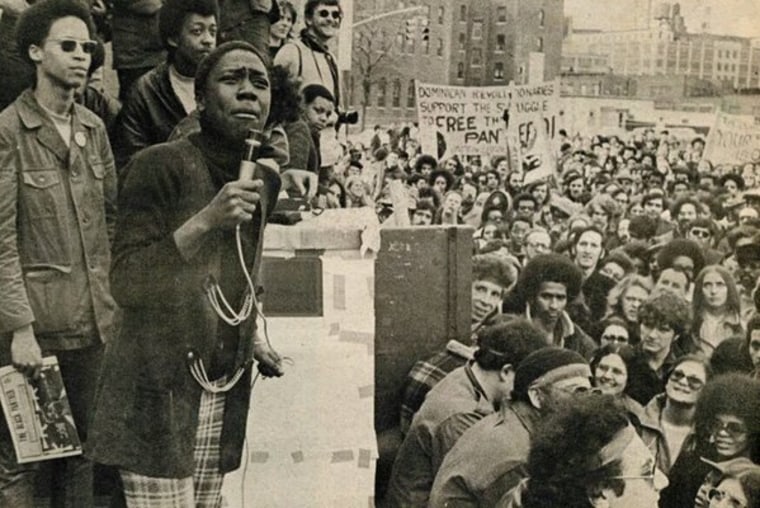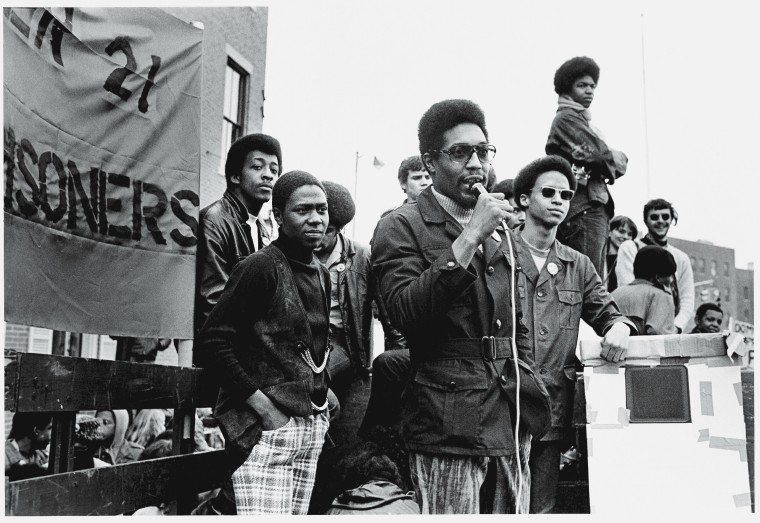
Though most Tupac fans were introduced to Afeni Shakur Davis through the 1995 hit ballad Dear Mama, her fellow Black Panthers and those she advocated for in her organizing days will remember her for much more.
Davis died Monday night after deputies responded to a report of possible cardiac arrest at her Sausalito, California, home.
Jamal Joseph, Cleo Silvers and Dhoruba Bin-Wahad are three Panthers who were greatly impacted by Davis’ life and leadership. They reflected on her time in New York City as a paralegal and her work with the Black Panther Party, which she joined as a teen in 1968.
RELATED: Afeni Shakur Davis, Activist and Mother of Tupac, Dies at 69
Joseph met Davis the first day he joined the Panthers at age 15. He came for a gun, but was instead given books and a mentor in Afeni Shakur.
“Afeni would teach people how to lead themselves. She would not just help people, then leave,” shared Joseph, also the author of Tupac Shakur Legacy and Panther Baby. “She made sure you knew how to get out of your own circumstances and your march toward liberation, being able to transform personally and in the community.”

During the 80s, Davis turned to drugs in her struggle with the post-traumatic stress of government oppression on the Black Panther Party. After seeing many leaders and fellow organizers die, friends say it became the way she coped.
Joseph worked with Davis for several years, some of them while she was on drugs. “She was still more dynamic and focused and powerful than some people were while sober,” recalled Joseph, who also acknowledged that by the time Dear Mama debuted, she was an active part of Tupac's life and was a close advisor to him.
RELATED: A Conversation with 'Black Panthers' Director Stanley Nelson
Joseph was the youngest of the Panther 21 trial in 1971. Davis, Joseph and 19 Panthers were accused of conspiring to bomb department stores and police stations in New York City. Davis told the other Panthers she would represent herself after reading “History Will Absolve me” by Fidel Castro and noted that if they lost the case, she would be the one serving, not the lawyers.
As a pregnant, single mom, she made her arguments and interviewed several witnesses while facing a 300-year sentence. The bail was set at $100K for each Panther. Davis became the first to be released, followed by Joseph, because the party knew they could go around and speak on the others’ behalf, which they did and helped raise funds to help the other prisoners come home. In the end, the case was acquitted.

Bin-Wahad, was also one of the defendants in the Panther 21 trial and served as the field secretary for the New York chapter of the Black Panther Party at the time. He was also indicted on charges of attempted murder and wrongfully convicted in 1973. He was then sent back to jail as a political prisoner for 19 years. Before his imprisonment, Bin-Wahad served alongside Davis and vividly remembers meeting her for the first time, “When Afeni first came up to Harlem, with her wide-smile and enthusiasm, she had a high level of intensity, but at heart she was a country girl. She stood out because of her closely cropped hairstyle, a ‘radical rebellion’ for black women at the time.”
After the repression of the party from the government increased, Bin-Wahad says that Davis’ attitude started to change and she gained even more grit. “She was the type of person that worked hard, would stay up all night to get leaflets done, though she also had a sense of humor. She was a good person to have in ‘the fight’ with you,” Bin Wahad explained.
She was a good person to have in ‘the fight’ with you,” Bin Wahad explained.
A large part of her fight and legacy was in letting people know how they could use their constitutional rights. Davis helped organizers to create the first version of the Patients’ Bill of Rights that can now be found in hospitals across the country.
Cleo Silvers was with Davis as she used to meet with patients, Panthers and community supporters at Lincoln Hospital to advocate for patients rights. On the first day Silvers went to Harlem to join the movement, she remembers Davis greeting her with a big smile. “Afeni made sure that all women were working together and showed [each other] mutual support,” said Silvers.
Silvers recalls that Davis was a very progressive mother with Tupac, always engaging his curiosity and getting him involved in the arts, which she believes led him to his outstanding talent.
After her son's death, Davis continued to support youth in arts programs through her foundation. Today, the Shakur estate released a statement that read in part, "An outspoken and eloquent advocate for Today's youth, Afeni founded the Tupac Amaru Shakur Foundation to instill a sense of freedom of expression and education through the arts." Her legacy will not be forgotten.

